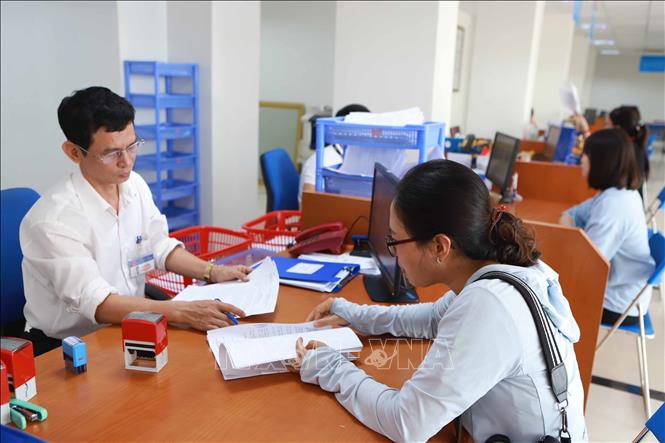
Accordingly, this will help to accurately reflect business capacity and ensure the principle in the Tax Administration Law that “Taxpayers self-declare, self-pay, and self-responsibility”; encourage the participation and sense of responsibility of taxpayers to the community and the country through tax payment based on business results. At the same time, tax authorities also have more accurate information on economic activities for effective management.
Mr. Mai Son also said that the elimination of lump-sum tax contributes to modernizing the tax system and improving management efficiency. This is a step in line with the current trend of digital transformation and electronic tax management. When business households self-declare on a digital platform, tax authorities can provide maximum support through simple electronic tax declaration and payment applications. In addition, this helps prevent fraud and tax losses more effectively and creates a healthy competitive environment among economic sectors, because all business households must comply with tax obligations in the same transparent manner.
In addition, it also promotes the transformation of business households into enterprises. When the lump-sum tax is abolished, business households are required to implement the accounting and invoice system like the business household model using the declaration method or small and micro enterprises. This will be a necessary preparation step for business households to develop into enterprises, thereby being able to access support policies and resources to expand production and business.
In preparation for the abolition of the lump-sum tax, business households will switch to self-declaration and tax payment, Mr. Mai Son said, the Ministry of Finance is proposing to amend and supplement the relevant Tax and Tax Administration Laws. Specifically, in the draft Tax Administration Law (new), the Ministry of Finance proposes to completely abolish the lump-sum tax collection mechanism for business households and individuals, switching to the application of the self-declaration and self-payment mechanism along with the implementation of accounting books, invoices and documents like enterprises.
At the same time, the Ministry is also studying amendments to the Law on Personal Income Tax and regulations related to value added tax to adjust the threshold of annual revenue not subject to tax. This adjustment is to ensure that business households with small revenue (below a certain threshold) continue to be exempt from tax, in line with the increase in family deductions when calculating personal income tax, thereby reducing the tax burden for small and micro businesses.
The Tax Authority is also implementing a new tax management model whose core task is to streamline the organization to be efficient, effective, and efficient; in which reforming the tax management apparatus for business households is one of the top priorities. Accordingly, the tax management apparatus is shifting from a functional tax management model to a subject-based management model to promptly support taxpayers, individualize the responsibilities of officials, and improve tax management efficiency through concentrating resources and applying management measures appropriate to the characteristics of each group of subjects, closely following revenue sources and localities, thereby ensuring correct and sufficient collection and preventing budget losses.
According to Mr. Mai Son, the Ministry of Finance aims to simplify the accounting, invoice and voucher regime to the maximum extent possible for businesses to implement. At the same time, state agencies will coordinate with accounting and invoice software solution providers to provide free shared accounting tools and software and increase support and guidance on accounting, tax and law for businesses. The goal is to help businesses get used to transparent bookkeeping and invoice issuance without creating too many complicated procedures or high compliance costs. The applications and software provided by the tax sector will help businesses calculate and easily declare their revenue and taxes payable, thereby making the transition to the new method simpler.
In particular, the Ministry of Finance has directed the tax sector to promote reform of tax administrative procedures and simplify the process of tax declaration and payment for business households and individuals.
Along with that, the tax industry is upgrading the system to support business households in electronic tax declaration with the feature of automatically filling in information based on invoice data, as well as the function of reminding tax declaration and payment deadlines. These technological solutions will help business households and small businesses easily comply with tax and accounting regulations, minimize errors and time to fulfill tax obligations.
Regarding the implementation of electronic invoices generated from cash registers, from December 15, 2022, the tax sector has implemented it to ensure that businesses and retail businesses selling goods and providing services directly to consumers can issue electronic invoices to customers at the time of sale quickly, conveniently, and cost-effectively, while helping tax authorities promptly record revenue.
The Ministry of Finance has also advised the Government to issue Decree No. 70/2025/ND-CP amending and supplementing a number of articles of Decree No. 123/2020/ND-CP dated October 19, 2020 of the Government regulating invoices and documents; in which, it expands the subjects required to apply electronic invoices generated from cash registers. Specifically, from June 2025, all business households and individuals paying taxes by the lump-sum method with revenue of VND 1 billion/year or more and operating in the retail sector, providing goods and services directly to consumers will have to issue electronic invoices from cash registers. This is a preparatory step for large business households to gradually get used to the new management method, transparent revenue like enterprises, and at the same time help tax authorities collect more realistic revenue data for the business household sector.
However, for many businesses, this is not only a change in method but also the additional costs are one of the main reasons why businesses are still hesitant.
Ms. T. Thuy, owner of a household appliance business in Hanoi, said: “If we have to buy computers, receipt printers, barcode scanners, software, etc., it will cost tens of millions of dong. In difficult business times, this investment is beyond our means.”
According to a survey in some areas in Hanoi, some suppliers offer free software solutions, but in fact, they are not completely free. Free here means that if businesses use the entire sales software package of the supplier, they will get free electronic invoice software, but each time they issue an invoice, they still have to pay.
Mr. Mai Son said that, aware of the initial confusion of business households when from January 1, 2026, they switch from lump-sum tax method to declaration method, the tax sector has implemented many support measures such as instructions for business households to clearly understand the benefits of using electronic invoices and self-declaring taxes, as well as specific implementation steps.
The tax authority also proactively reviews and reminds households that are required to apply electronic invoices from cash registers to register and install the system. The tax authority coordinates with electronic invoice service providers to have policies to support equipment and service costs for business households in the initial implementation phase (such as support for cash registers, receipt printers, reduced connection service fees, etc.).
In addition, the Ministry of Finance has issued a document requesting the Provincial Party Committees, City Party Committees and People's Committees of provinces and cities to pay attention to directing authorities at all levels and relevant departments to coordinate with tax authorities in implementing the electronic invoice solution from cash registers. Local authorities are also encouraged to have financial support plans for businesses facing difficulties (for example, poor households, households in remote areas without equipment) to help them apply this solution soon.
Tax industry leaders also said they will continue to promote internal digital transformation, improve the quality of public services and tax management capacity.
Source: https://kontumtv.vn/tin-tuc/kinh-te/xoa-bo-thue-khoan-buoc-chuyen-can-ban-trong-quan-ly-ho-kinh-doanh


![[Photo] Prime Minister Pham Minh Chinh chairs the first meeting of the Central Steering Committee on housing policy and real estate market](https://vphoto.vietnam.vn/thumb/1200x675/vietnam/resource/IMAGE/2025/9/22/c0f42b88c6284975b4bcfcf5b17656e7)











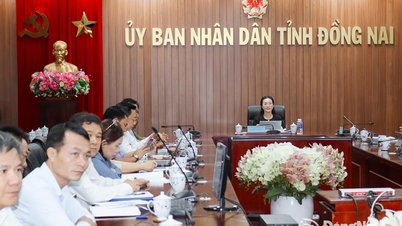







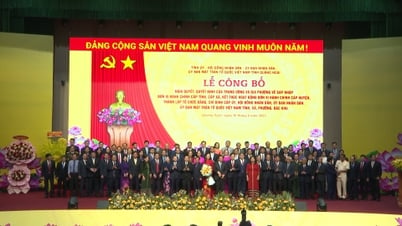
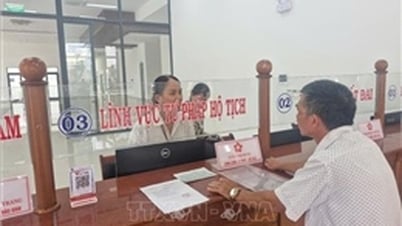

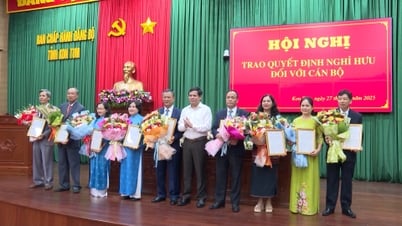
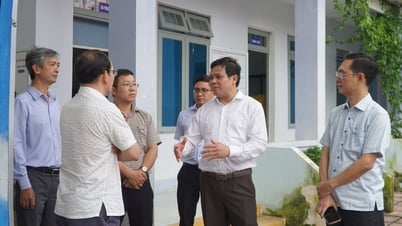
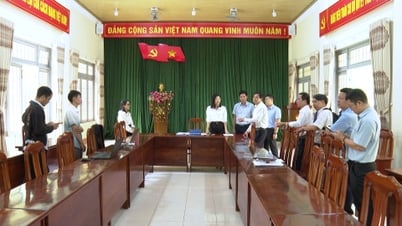
![[Photo] General Secretary To Lam presents the First Class Labor Medal to the Vietnam National Energy and Industry Group](https://vphoto.vietnam.vn/thumb/1200x675/vietnam/resource/IMAGE/2025/9/21/0ad2d50e1c274a55a3736500c5f262e5)








































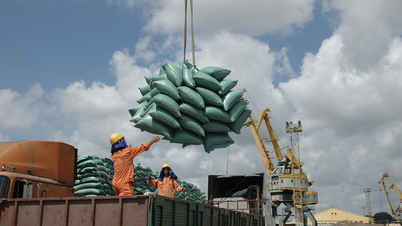







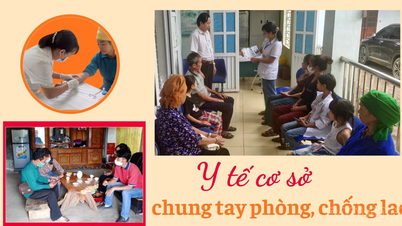



















Comment (0)